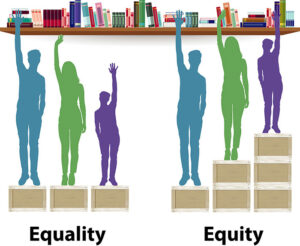
Retail staffing solutions are pivotal in navigating the complexities of the retail landscape, where the right talent can make all the difference. This comprehensive exploration delves into the various staffing models, innovative strategies, and the global perspectives that shape effective hiring practices in the retail sector.
From leveraging cutting-edge technology to address staffing challenges to understanding the importance of cultural nuances in international markets, this discussion highlights the dynamic nature of retail recruitment. Discover how effective staffing not only enhances operational efficiency but also drives customer satisfaction and business growth.
Overview of Retail Staffing Solutions
Retail staffing solutions refer to the strategies and processes that businesses in the retail sector use to hire, manage, and optimize their workforce. These solutions are crucial as they directly influence customer service quality, employee satisfaction, and overall operational efficiency. In a highly competitive market, the right staffing model can make all the difference in meeting consumer demands and achieving business goals.There are various types of retail staffing models available to retailers, including seasonal staffing, part-time staffing, and full-time staffing.
Each model caters to different business needs and can significantly impact the agility and responsiveness of a retail operation. However, retailers often face several challenges in staffing effectively, such as high turnover rates, fluctuating demand, and the need for specialized skills in a rapidly evolving market.
Business Innovation in Retail Staffing
Innovative technologies are transforming retail staffing solutions, enabling businesses to streamline hiring processes and improve employee management. Artificial intelligence (AI) is a key player in this transformation, capable of analyzing candidate data to enhance staffing efficiency, predict turnover, and identify the best-fit candidates for specific roles. Retailers leveraging AI can effectively reduce hiring time and improve retention rates.Successful retail staffing innovations include the use of mobile apps for employee scheduling and the implementation of gamified recruitment processes to engage potential candidates.
These approaches not only attract talent but also promote a positive candidate experience, which is vital in a competitive job market.
International Business Perspectives on Retail Staffing
Retail staffing practices vary significantly across different countries, influenced by cultural norms, labor laws, and market dynamics. For instance, while some countries prioritize flexible working arrangements, others may have stringent regulations governing employment contracts and benefits. Understanding these differences is essential for retailers operating internationally.Cultural considerations play a critical role in shaping retail staffing approaches. Retailers must be mindful of local customs and expectations regarding employee engagement, communication styles, and management practices.
Global trends, such as the increasing reliance on technology and the growing emphasis on diversity and inclusion, are also impacting retail staffing solutions worldwide.
Business Interviews in Retail Staffing
Conducting interviews in retail staffing requires a structured approach to ensure a good fit between candidates and job roles. A comprehensive guide for retail interviews should include clear job descriptions, a consistent set of questions, and a focus on both technical skills and cultural fit.Best practices for assessing candidate fit involve evaluating not only professional qualifications but also soft skills such as communication, teamwork, and problem-solving abilities.
In retail, soft skills are often as crucial as technical expertise, as they directly affect customer interactions and team dynamics.
Job Search Techniques for Retail Positions
Job seekers targeting retail roles should employ various strategies to enhance their chances of landing positions. Creating tailored resumes that highlight relevant experience and utilizing online job portals effectively can set candidates apart in the competitive landscape. Networking is another critical component of job searching in retail. Engaging with industry professionals through social media platforms and attending local job fairs can uncover hidden opportunities.
Resources for retail job searching include career websites, industry-specific job boards, and recruitment agencies specializing in retail placements.
Business Management Strategies for Retail Staffing

Effective retail workforce management requires a comprehensive framework that encompasses hiring, training, and ongoing employee development. Retailers should prioritize metrics for evaluating staffing performance, such as turnover rates, employee satisfaction scores, and sales performance.Leadership plays a vital role in the success of retail staffing solutions. Strong leaders can foster a positive work environment, motivate staff, and ensure that the staffing strategy aligns with the overall business objectives.
Marketing Direct Approaches in Retail Staffing
Creating a marketing plan for promoting retail staffing solutions involves identifying the target audience, outlining unique selling propositions, and utilizing various channels to reach potential clients. Employer branding is essential for attracting top talent, as it conveys a company’s values, culture, and benefits to prospective employees.Effective marketing campaigns for retail hiring can include social media promotions, employee testimonials, and partnerships with local educational institutions to tap into emerging talent pools.
Business Networking in Retail Staffing
Building a professional network in the retail industry can significantly enhance career opportunities and business prospects. Strategies for effective networking include joining industry associations, participating in trade shows, and connecting with peers on LinkedIn.Attending retail industry events and conferences not only provides valuable insights into market trends but also helps establish meaningful connections. Key organizations focused on retail staffing, such as the Retail Industry Leaders Association (RILA) and the National Retail Federation (NRF), offer networking opportunities and resources for professionals in the field.
Business Outsourcing in Retail Staffing
Outsourcing retail staffing can offer numerous benefits, including cost savings, access to specialized expertise, and increased flexibility in workforce management. Common roles typically outsourced in retail environments include logistics, human resources, and customer service positions.Successful outsourcing partnerships in retail are characterized by clear communication, established performance metrics, and a shared commitment to achieving business objectives. Retailers that carefully select outsourcing partners can enhance their operational efficiency and focus on core business functions.
Business Presentation Techniques for Retail Staffing Solutions
When pitching retail staffing solutions, it’s crucial to create a compelling presentation that clearly Artikels the value proposition. Key components of a successful staffing proposal should include an overview of services, case studies highlighting past successes, and a transparent pricing structure.Utilizing visual aids such as charts, graphs, and infographics can enhance the effectiveness of staffing presentations, making complex information more digestible and engaging for the audience.
Enhancing Business Productivity in Retail Staffing
Improving productivity through better staffing strategies involves aligning workforce capabilities with business needs. Tools and technologies, such as workforce management software, can help optimize scheduling and resource allocation, leading to significant gains in productivity.Case studies showcasing productivity improvements from effective staffing highlight the importance of proactive workforce planning and employee engagement initiatives. Retailers that prioritize these areas often see enhanced customer satisfaction and increased sales performance.
Staffing Solutions in the Restaurant Industry
The restaurant industry faces unique staffing challenges, including high turnover rates and fluctuating customer demand. Effective staffing strategies specific to restaurants include cross-training employees, implementing flexible scheduling, and fostering a positive work culture to retain staff.Training and retaining restaurant staff are critical for maintaining service quality. Offering ongoing development opportunities and creating a supportive work environment can significantly impact employee loyalty and operational success.
Crafting Resumes and Cover Letters for Retail Positions
Creating impactful resumes tailored for retail jobs involves emphasizing relevant experience, showcasing achievements, and utilizing industry-specific s. Common mistakes to avoid in retail cover letters include generic language and failing to highlight why the candidate is a good fit for the specific role.Examples of effective resumes and cover letters for retail roles often include quantifiable results, such as sales achievements or customer satisfaction ratings, illustrating the candidate’s contribution to previous employers.
Business Retail Trends Affecting Staffing Solutions
Current trends in retail, such as the rise of e-commerce and the increasing importance of personalized customer experiences, are influencing staffing needs. Retailers must adapt their staffing strategies to accommodate seasonal fluctuations and the demand for specialized skills in digital marketing and technology.Insights into the impact of e-commerce on retail staffing reveal a shift towards remote and flexible work arrangements, requiring retailers to rethink traditional staffing approaches and invest in training for digital competencies.
Risk Management in Retail Staffing Solutions

Potential risks involved in retail staffing include legal liabilities, compliance issues, and reputational damage from poor hiring practices. Mitigating these risks requires a thorough understanding of legal considerations in retail hiring, such as anti-discrimination laws and labor regulations.Best practices for maintaining compliance in retail staffing involve regular audits of hiring practices, employee training on legal requirements, and developing clear policies to address employee behavior and workplace conduct.
Business Sales Strategies for Staffing Solutions
Developing a sales strategy for retail staffing solutions involves understanding client needs and tailoring offerings to meet those requirements. Building strong relationships with potential clients through personalized communication and demonstrating industry expertise can enhance sales efforts.Successful sales approaches in retail staffing often rely on case studies and testimonials from satisfied clients, showcasing the effectiveness of the staffing solutions provided.
Sales Management Techniques in Retail Staffing
Managing a sales team in a retail staffing context requires a focus on motivation, performance tracking, and continuous training. Key performance indicators for retail staffing sales might include conversion rates, client satisfaction, and revenue growth.Training sales teams for retail staffing solutions should emphasize product knowledge, negotiation skills, and relationship-building techniques to ensure that team members are equipped to succeed in a competitive marketplace.
Sales Teleselling Approaches in Retail Staffing
Designing a teleselling strategy for retail staffing services involves developing a clear script, identifying key selling points, and utilizing effective communication techniques. Following up with potential clients after initial contact is essential to secure staffing contracts and build relationships.Effective communication in teleselling should focus on understanding client challenges and articulating how staffing solutions can address those needs, ultimately leading to successful partnerships.
Sales Training for Retail Staffing Solutions
Creating a training program for sales teams in retail staffing involves incorporating best practices, role-playing scenarios, and ongoing education on industry trends. Continuous learning is vital for maintaining competitive advantages in sales techniques and market knowledge.Successful training methodologies used in retail staffing often combine theoretical learning with practical application, ensuring that sales teams are well-prepared to meet client expectations.
Business Security Considerations in Retail Staffing
Security concerns related to retail staff hiring include the risk of theft, fraud, and workplace violence. Conducting thorough background checks on retail employees is essential for mitigating these risks and ensuring a safe working environment.Maintaining a secure retail environment also involves implementing security protocols, providing employee training on safety practices, and fostering a culture of accountability among staff members.
Supporting Small Business Staffing Needs
Small businesses face unique challenges in staffing, such as limited resources and competition from larger retailers. Tailored staffing solutions for small retailers may include flexible hiring strategies, community engagement, and leveraging local talent pools.Success stories of small businesses improving staffing often highlight innovative approaches, such as creating strong employer brands and building collaborative relationships with local educational institutions to attract talent.
Resources for Solo Professionals in Retail Staffing
Solo entrepreneurs in retail staffing can access various resources to enhance their operations, including industry associations, online forums, and networking opportunities. Engaging with other professionals can provide valuable insights and support for navigating challenges.Managing staffing as a solo business owner requires effective time management and the ability to wear multiple hats, from recruitment to client relations. Utilizing technology can streamline processes and improve operational efficiency.
Strategic Planning for Retail Staffing
Creating a strategic plan for addressing staffing needs in retail involves assessing current workforce capabilities, forecasting future needs, and developing strategies to fill skill gaps. Long-term workforce planning is essential for ensuring that retailers can adapt to changing market conditions.Tools for tracking staffing metrics and outcomes may include workforce management software, employee feedback surveys, and performance analytics, enabling retailers to make data-driven decisions.
Team Building Techniques for Retail Staff
The importance of team dynamics in retail environments cannot be overstated. Fostering collaboration among retail staff can lead to improved communication, increased morale, and enhanced customer service.Strategies for team building may include team-building activities, regular staff meetings, and recognition programs that celebrate achievements and encourage a sense of belonging within the team.
Venture Capital Considerations for Retail Staffing Startups
Funding options for startups focused on retail staffing solutions can include angel investors, venture capital, and crowdfunding platforms. Key factors that investors consider in retail staffing businesses include market potential, competitive differentiation, and the management team’s experience.Successful retail staffing startups often showcase innovative solutions and a clear business model, which can attract investment and support for growth.
Improving Workplace Communication in Retail Staffing
Enhancing communication among retail staff is crucial for fostering a collaborative work environment. Strategies to improve communication may include regular team meetings, feedback mechanisms, and the use of communication tools like messaging platforms.Examples of successful communication initiatives in retail often involve creating open channels for staff to voice concerns, share ideas, and contribute to decision-making processes, ultimately leading to increased employee engagement.
Ensuring Workplace Safety in Retail Staffing
Safety training requirements for retail staff are essential for preventing workplace incidents and ensuring compliance with health and safety regulations. Common safety hazards in retail environments include slip and fall accidents, equipment-related injuries, and exposure to hazardous materials.Best practices for maintaining a safe workplace for retail employees involve implementing safety protocols, conducting regular safety drills, and promoting a culture of safety awareness among staff.
Final Conclusion
In summary, the realm of retail staffing solutions is continuously evolving, requiring businesses to adapt and innovate in their hiring practices. By embracing new technologies, understanding global trends, and focusing on team dynamics, retailers can build a resilient workforce that meets the demands of a rapidly changing market. As we move forward, prioritizing effective staffing strategies will be essential for sustainable success in the retail industry.
FAQ Corner
What are the benefits of using retail staffing solutions?
Retail staffing solutions help streamline the hiring process, reduce turnover rates, and enhance overall workforce efficiency.
How does technology impact retail staffing?
Technology improves recruitment processes through data analytics, automated screening, and better communication tools, making staffing more efficient.
What role does soft skill assessment play in retail staffing?
Soft skills are crucial in retail as they affect customer interactions; assessing these skills helps ensure a good fit for customer-facing roles.
How can small businesses benefit from retail staffing solutions?
Small businesses can optimize their hiring processes, access a wider talent pool, and implement cost-effective staffing strategies to meet their unique needs.
What should retailers consider when outsourcing staffing?
Retailers should evaluate the reliability of the outsourcing partner, understand the specific roles to be outsourced, and maintain clear communication throughout the process.





